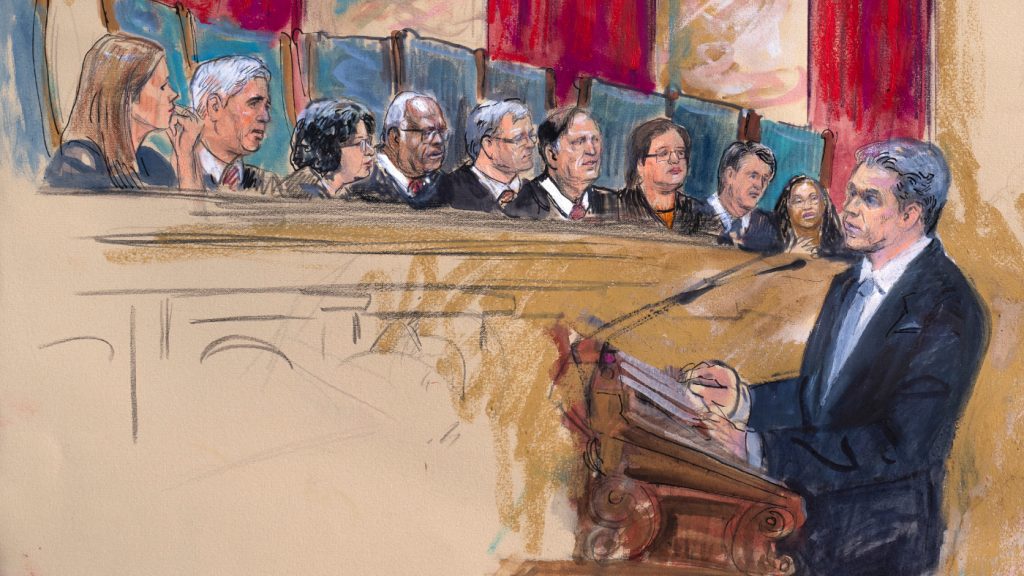ProPublica was awarded the prestigious Pulitzer Prize for public service for its investigation into the Supreme Court and the wealthy donors who provided gifts and travel to justices over many years. announced Monday.
The prize was given to the ProPublica team for their “Friends of the Court” series by journalists Joshua Kaplan, Justin Elliott, Brett Murphy, Alex Mierjeski, and Kirsten Berg. ProPublica said stated that this marks the organization’s seventh Pulitzer Prize.
The Pulitzer Prize Board praised the reporters for their “innovative and ambitious reporting that broke through the secrecy surrounding the Supreme Court to uncover how a select group of politically powerful billionaires courted justices with extravagant gifts and travel, leading the Court to establish its first code of conduct.”
The 2023 Pulitzer Prize winners were announced on Wednesday, recognizing achievements in journalism across 15 diverse categories. The awards also acknowledged excellence in eight categories within the arts, such as books, music, and theater. announced The New York Times and The Washington Post each received three awards. The New Yorker and Reuters each garnered two.
The Times earned the Pulitzer for international reporting for its coverage of the Oct. 7 attack and the war in Gaza. The photography team at Reuters won for breaking news photography documenting the Oct. 7 attack and the initial weeks of the Israel-Hamas conflict.
The Times’s Hannah Dreier earned the Pulitzer for investigative reporting for her work exposing “the extensive prevalence of child labor among migrants throughout the United States, as well as the systemic failures of both corporations and government that perpetuate it.” The Times’s Katie Engelhart received the award for feature writing for a story highlighting a family’s challenges during the mother’s progressive dementia.
The Pulitzer for national reporting was granted to both the staff of the Post, for its reporting on the AR-15 semi-automatic rifle, and to the staff of Reuters for its reporting on Elon Musk and his enterprises.
The Post’s David Hoffman received the Pulitzer for editorial writing for a series on authoritarian regimes’ tactics to suppress in the digital age. The Post’s Vladimir Kara-Murza was recognized for columns composed “at great personal risk from his prison cell,” cautioning about the repercussions of opposition to Russian President Vladimir Putin, while “advocating for a democratic future for his country.”
Justin Chang of the Los Angeles Times earned the Pulitzer for criticism.
The Pulitzer Prize for explanatory reporting was given to Sarah Stillman of The New Yorker for “a scathing critique of our legal system’s reliance on the felony murder charge and its uneven consequences, often devastating for communities of color.” Medar de la Cruz of The New Yorker won for illustrated reporting and commentary for a series within Rikers Island jail.
The Associated Press photography team received the Pulitzer for feature photography for capturing the journey of migrants “and their challenging trek north from Colombia” to the U.S. border.
The Lookout Santa Cruz, California, team earned the Pulitzer for breaking news reporting on catastrophic flooding and mudslides. Sarah Conway of City Bureau and Trina Reynolds Tyler of the Invisible Institute were awarded for local reporting for their series on missing Black girls and women in Chicago. The teams at the Invisible Institute, Chicago, and USG Audio, California, won for audio reporting that revisited a Chicago hate crime from the 1990s.
ProPublica was awarded the public service Pulitzer Prize for its investigative reporting on the Supreme Court and the wealthy individuals who provided donations and complimentary trips to justices over many years, the Pulitzer Prize Board revealed on Monday. The prize was presented to the ProPublica team, a nonprofit news organization, for their series called “Friends of the Court” by…









